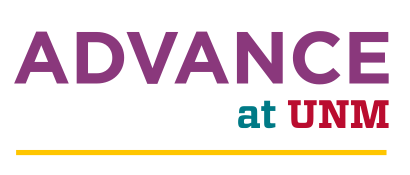
UNM biology professor studies role of water source in shaping algae communities
Key info:
Through the award, Dr. Becky Bixby aims to understand the role of water sources in shaping groups of algae diversity in alpine streams.
Quote:
“Research at the intersection of climate change, ecology, and biodiversity is a real draw for me,” Bixby said. “I find these kinds of questions fascinating and important as they utilize my expertise and knowledge while adding challenges in thinking about how to address the questions.”
Editor’s note: This Women in STEM Award winner profile is part of a series of stories that explores what recipients have been working on since the awards began in 2106.
Dr. Rebecca Bixby won the 2020 Women in STEM Award for her proposal “Icy Seeps: A Potential Stronghold for Algal Stenotherm Biodiversity.”
The research aims to understand the role of water sources in shaping groups of algae diversity in alpine streams.
“This award has allowed me to gather and analyze baseline data from aquatic alpine habitats that are threatened by climate warming,” Bixby said. “This pilot study is important in obtaining funds for long-term monitoring from agencies like the National Science Foundation.”
Bixby, a research assistant professor in the Department of Biology, said she is interested in the role of insulated, buried ice as a potential water source in alpine streams that may provide longer-term refuge for algae that are adapted to cold temperatures.

Algae that reside in alpine streams are being threatened by global warming, and Bixby’s project is studying options to provide refuge for the aquatic plants in icy seeps, a type of alpine stream fed by meltwater runoff from subterranean ice.
This type of stream was revealed during a research project Bixby initially participated in 2016 on alpine streams in the Teton Mountain Range.
In December of 2016, Bixby co-authored the paper “A unique “ice seep” aquatic habitat in the high Teton Range: Potential refuge for biological assemblages imperiled by climate change.”
She and her team documented several icy seeps in the Teton massif, and their data suggested that they have the potential to serve as climate refuge for organisms and processes associated with extremely cold meltwater.
It’s too soon to conclude anything since the current research started during 2020 and is still in progress as of May 2021, Bixby said.

Bixby’s reason for doing this project is personal but also relates to more worldly concerns.
“Research at the intersection of climate change, ecology, and biodiversity is a real draw for me,” Bixby said. “I find these kinds of questions fascinating and important as they utilize my expertise and knowledge while adding challenges in thinking about how to address the questions.”
Because the research is still relatively new, Bixby said the project has faced a number of COVID-related delays in getting permission from the Grand Teton National Park for field work and lab access at the University of New Mexico. The research has completed one-third of the projected plan focussed on 2019 and 2020 collections.
Despite Bixby’s struggles with lab accessibility, she and her graduate student have a poster presentation on preliminary results in May 2021 at the Society for Freshwater Science annual meeting and has a projected manuscript for 2022.
“This WIS funding is also partially supporting a water resources graduate student, Shannon Weld, who is working on this research for her master’s degree,” Bixby said.
Additionally, the project recently received a small natural history grant from the Western North American Naturalist journal to support 2022 summer fieldwork in the Tetons.

Streams in the Tetons are located in northwestern Wyoming, where they cascade down the rocky canyons of Jackson Hole’s valley into lakes at the foot of the Teton Range.
Bixby said the most rewarding part so far has been learning new processes and ecosystems.
“My graduate student and I are learning about these alpine systems together and that has been exciting to see her enthusiasm for these fascinating systems.”
In the past, Bixby has been featured in Advance at UNM for her studies on the impact of river management on wildlife and she has presented at UNM’s Lightning Lounge events in 2021.
“As research faculty, the publicity of this interesting research is much appreciated. I am grateful for all of the effort from ADVANCE to get the word out.”
